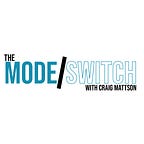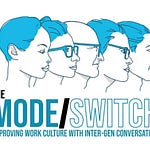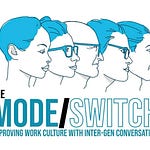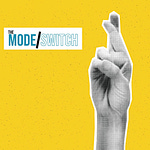This week’s issue is from you! Or some of you, anyway. Thanks for sending questions! I’m no Answer Man, but the insights you’ll find below draw on my research among early-careerists. If you have an inquiry not addressed below, just hit reply on this email. Your question can find a place in an upcoming Mailbag.
I’ve known a lot of millennials who have stumbled their way through their careers before finding a ‘breakthrough role’ that finally feels like a good fit. Is that just how work is for everyone? Or is work more fragmented these days than it used to be? - Alan
Sounds all too familiar! I have a friend who describes her career path as falling down several flights of stairs, getting up, walking with dignity down the next flight or two, and then tumbling down a few more. She’s now landed in a company she admires doing work she cares about. But, boy, I wish her falling down the up-stair-case story were less common!
More than one of my research participants describes getting the job they’d gone to grad school for and then leaving that job for a position less glamorous, yes, but also a heckuva lot less lonely. And then, there’s the interviewee who ended up working for one of the most impressive video game companies out there today—Bungee—but only after making his way through a toxic experience of corporate America (Wells Fargo) and then doing work for a casino. Sure, he learned a lot of skills along the way, but it would have been good to find a more direct path to the career he’d sought all along.
How might vocational journeys become less chaotic? One priority, I think, should be to create a clearer relationship between colleges and companies. Internships simply aren’t sufficient, primarily because they don’t usually involve a formal relationship between the college and the workplace. Instead, it’s the student that floats out there like a ghost haunting a company for a few weeks one summer, and then flitting away. To make matters worse, (as my colleague, Aaron Kuecker, points out) it’s not the college or the employer that bears the risk in today’s job market. Nope, it’s the college graduate herself. Formalizing partnerships between colleges and companies, while risky to the purity of the liberal arts curriculum, could help redistribute vocational risk. It might also make your first few jobs less like falling down the stairs you’re supposed to be climbing up.
How does a freelancer balance the energy of work with the drain of finding that work in a gig economy? The actual work—anytime I spend with clients—is energizing, but its relative unpredictability feels draining. Like, I spend too much time checking my Google calendar to make sure I have 20 hours lined up, or whatever. – E. Christiana
Yikes, you’re pointing to big structural problems in today’s fragmented economy! Some days, it seems like the best way forward would be to torch capitalism and start over Amish.
Your smart question, though, points to practical realities worth addressing even before the New Jerusalem arrives. Speaking of Jerusalem, I remember talking with a Cincinnati entrepreneur who touted what she called a Jewish model of enterprise—you know, those enclaves where the cobbler lived in one house, the baker in another, the carpenter in another. That proposal makes me think you should, yes, do your gig, but don’t do it alone. Form a circle of gig practitioners, each of whom has a different skill, but all of whom are invested in the diverse solidarity of mutual aid. That sort of informal alliance might take some of the freedom out of your work. But if I’m reading between the lines of your question aright, you’re getting tired of the not-so-free parts of freelancing.
One more thought: one of the virtues of the gig economy may be an early clarification on your vocational commitments and your gifts. In other words, you try out stuff and say, “Nope, not for me.” A recent report entitled “New Workers, New Normal,” put out by the Morning Consult suggests that “The ‘Great Resignation’ is actually a ‘Great Reprioritization.” It may be that the gig economy offers you a chance to figure out those priorities quicker than someone who follows a conventional job path into, I dunno, big corporate or whatever.
Will there be a newsletter relating to confidence in the workplace? - Abby
There should be! Thanks for the prompt. One thing I hear from my research participants is that being a Gen Z employee means that you’re constantly making decisions about when to advocate for yourself and when to let hurtful things slide. I remember speaking with a black woman who, even though she’s young, has worked her way up to an impressive position in Chicagoland politics. Even as a commissioner, though, she has to be careful not to offend the feelings of the white guys who have been around in politics forever or the black leaders at the forefront of faith communities. Make these oldsters feel respected, and you can get things done.
What I’ve learned from young professionals like her is that workplace wisdom appears where barter meets gift. Let me explain. Sometimes, being smart at work means being good at making deals. Bartering. Trade-for-trade. Which is probably why that interview subject had to stroke some oldsters’ egos. But early-career practitioners also find confidence in the practice of generosity. Cal Seerveld once said that vocation means discovering your gift and then giving it away. I hear much the same thing from my interviewees.
What steps should one take to help prepare for the professional world? - Dawson
I love this question. But I gotta confess that The Mode/Switch doesn’t offer much conventional job-prep advice. Nope, you won’t find listicles here for the Best Bet for Bargaining for Better Benefits with Your New Boss.
But here’s another sort of job preparation wisdom all the same. I once heard Ezra Klein tout the Buddhist concept of unreliability. What he meant by this, I think, was that the thoughts in your head aren’t entirely reliable. Sometimes, the stories in your head are hero’s journey narratives straight out of a Marvel movie. Which isn’t all bad! I remember learning from a young professional say that such stories can help you big yourself up.
But lately, I’ve been thinking that job-prep requires internal stories that don’t necessarily start with you as the lonely but gifted individual. Sure, when you join a company, you might need to say, “Here’s why I’d be awesome for this position!” But, really, the best preparation for life in that organization might mean saying, “Here’s what’s amazing in this workplace community—and I’m here for that amazingness.”
Any research on how to interact with co-workers? - Grace
The good news is that the early-career professionals I talk to mostly seem to like their coworkers! Things get more difficult when the boss shows up—especially when you’re the boss. I’m thinking of one Los-Angeles-based millennial who has, in the past year, become a team manager. Her work has become easier, sort of. I mean, she finally has people to do things! But it’s hard, she says, to keep up personal relationships on her team and, at the same time, keep up impersonal processes.
That tension between relationship and structure has become harder with the expansion of remote work, by the way. Business schools need whole new MBA tracks on how to manage remote teams.
Hey, maybe that’s a question for the next mailbag issue of The Mode/Switch! How do you get co-workers to interact well when half of them knew each other face-to-face and the other half were hired after COVID’s shelter-in-place?
What questions do you have? Hit reply with what’s on your mind. We’ll be back next week with another interview. - Craig











